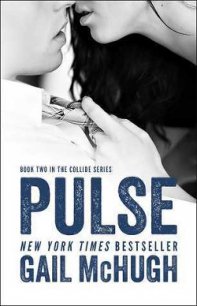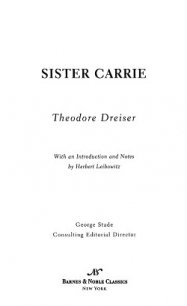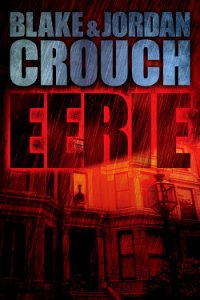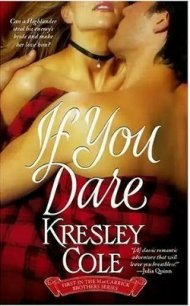A Walk to Remember - Sparks Nicholas (электронную книгу бесплатно без регистрации .txt) 📗
So Hegbert decided to try his hand at writing his own play. He'd written his own sermons his whole life, and some of them, we had to admit, were actually interesting, especially when he talked about the "wrath of God coming down on the fornicators" and all that good stuff. That really got his blood boiling, I'll tell you, when he talked about the fornicators. That was his real hot spot. When we were younger, my friends and I would hide behind the trees and shout, "Hegbert is a fornicator!" when we saw him walking down the street, and we'd giggle like idiots, like we were the wittiest creatures ever to inhabit the planet.
Old Hegbert, he'd stop dead in his tracks and his ears would perk up—I swear to God, they actually moved—and he'd turn this bright shade of red, like he'd just drunk gasoline, and the big green veins in his neck would start sticking out all over, like those maps of the Amazon River that you see in National Geographic. He'd peer from side to side, his eyes narrowing into slits as he searched for us, and then, just as suddenly, he'd start to go pale again, back to that fishy skin, right before our eyes. Boy, it was something to watch, that's for sure.
So we'd be hiding behind a tree and Hegbert (what kind of parents name their kid Hegbert, anyway?) would stand there waiting for us to give ourselves up, as if he thought we'd be that stupid. We'd put our hands over our mouths to keep from laughing out loud, but somehow he'd always zero in on us. He'd be turning from side to side, and then he'd stop, those beady eyes coming right at us, right through the tree. "I know who you are, Landon Carter," he'd say, "and the Lord knows, too." He'd let that sink in for a minute or so, and then he'd finally head off again, and during the sermon that weekend he'd stare right at us and say something like "God is merciful to children, but the children must be worthy as well." And we'd sort of lower ourselves in the seats, not from embarrassment, but to hide a new round of giggles. Hegbert didn't understand us at all, which was really sort of strange, being that he had a kid and all. But then again, she was a girl. More on that, though, later.
Anyway, like I said, Hegbert wrote The Christmas Angel one year and decided to put on that play instead. The play itself wasn't bad, actually, which surprised everyone the first year it was performed. It's basically the story of a man who had lost his wife a few years back. This guy, Tom Thornton, used to be real religious, but he had a crisis of faith after his wife died during childbirth. He's raising this little girl all on his own, but he hasn't been the greatest father, and what the little girl really wants for Christmas is a special music box with an angel engraved on top, a picture of which she'd cut out from an old catalog. The guy searches long and hard to find the gift, but he can't find it anywhere. So it's Christmas Eve and he's still searching, and while he's out looking through the stores, he comes across a strange woman he's never seen before, and she promises to help him find the gift for his daughter. First, though, they help this homeless person (back then they were called bums, by the way), then they stop at an orphanage to see some kids, then visit a lonely old woman who just wanted some company on Christmas Eve. At this point the mysterious woman asks Tom Thornton what he wants for Christmas, and he says that he wants his wife back. She brings him to the city fountain and tells him to look in the water and he'll find what he's looking for. When he looks in the water, he sees the face of his little girl, and he breaks down and cries right there. While he's sobbing, the mysterious lady runs off, and Tom Thornton searches but can't find her anywhere. Eventually he heads home, the lessons from the evening playing in his mind. He walks into his little girl's room, and her sleeping figure makes him realize that she's all he has left of his wife, and he starts to cry again because he knows he hasn't been a good enough father to her. The next morning, magically, the music box is underneath the tree, and the angel that's engraved on it looks exactly like the woman he'd seen the night before.
So it wasn't that bad, really. If truth be told, people cried buckets whenever they saw it. The play sold out every year it was performed, and due to its popularity, Hegbert eventually had to move it from the church to the Beaufort Playhouse, which had a lot more seating. By the time I was a senior in high school, the performances ran twice to packed houses, which, considering who actually performed it, was a story in and of itself.
You see, Hegbert wanted young people to perform the play—seniors in high school, not the theater group. I reckon he thought it would be a good learning experience before the seniors headed off to college and came face-to-face with all the fornicators. He was that kind of guy, you know, always wanting to save us from temptation. He wanted us to know that God is out there watching you, even when you're away from home, and that if you put your trust in God, you'll be all right in the end. It was a lesson that I would eventually learn in time, though it wasn't Hegbert who taught me.
As I said before, Beaufort was fairly typical as far as southern towns went, though it did have an interesting history. Blackbeard the pirate once owned a house there, and his ship, Queen Anne's Revenge, is supposedly buried somewhere in the sand just offshore. Recently some archaeologists or oceanographers or whoever looks for stuff like that said they found it, but no one's certain just yet, being that it sank over 250 years ago and you can't exactly reach into the glove compartment and check the registration. Beaufort's come a long way since the 1950s, but it's still not exactly a major metropolis or anything. Beaufort was, and always will be, on the smallish side, but when I was growing up, it barely warranted a place on the map. To put it into perspective, the congressional district that included Beaufort covered the entire eastern part of the state—some twenty thousand square miles—and there wasn't a single town with more than twenty-five thousand people. Even compared with those towns, Beaufort was regarded as being on the small side. Everything east of Raleigh and north of Wilmington, all the way to the Virginia border, was the district my father represented.
I suppose you've heard of him. He's sort of a legend, even now. His name is Worth Carter, and he was a congressman for almost thirty years. His slogan every other year during the election season was "Worth Carter represents—" and the person was supposed to fill in the city name where he or she lived. I can remember, driving on trips when me and Mom had to make our appearances to show the people he was a true family man, that we'd see those bumper stickers, stenciled in with names like Otway and Chocawinity and Seven Springs. Nowadays stuff like that wouldn't fly, but back then that was fairly sophisticated publicity. I imagine if he tried to do that now, people opposing him would insert all sorts of foul language in the blank space, but we never saw it once. Okay, maybe once. A farmer from Duplin County once wrote the word shit in the blank space, and when my mom saw it, she covered my eyes and said a prayer asking for forgiveness for the poor ignorant bastard. She didn't say exactly those words, but I got the gist of it.
So my father, Mr. Congressman, was a bigwig, and everyone but everyone knew it, including old man Hegbert. Now, the two of them didn't get along, not at all, despite the fact that my father went to Hegbert's church whenever he was in town, which to be frank wasn't all that often. Hegbert, in addition to his belief that fornicators were destined to clean the urinals in hell, also believed that communism was "a sickness that doomed mankind to heathenhood." Even though heathenhood wasn't a word—I can't find it in any dictionary—the congregation knew what he meant. They also knew that he was directing his words specifically to my father, who would sit with his eyes closed and pretend not to listen. My father was on one of the House committees that oversaw the "Red influence" supposedly infiltrating every aspect of the country, including national defense, higher education, and even tobacco farming. You have to remember that this was during the cold war; tensions were running high, and we North Carolinians needed something to bring it down to a more personal level. My father had consistently looked for facts, which were irrelevant to people like Hegbert. Afterward, when my father would come home after the service, he'd say something like "Reverend Sullivan was in rare form today. I hope you heard that part about the Scripture where Jesus was talking about the poor. . . ."




